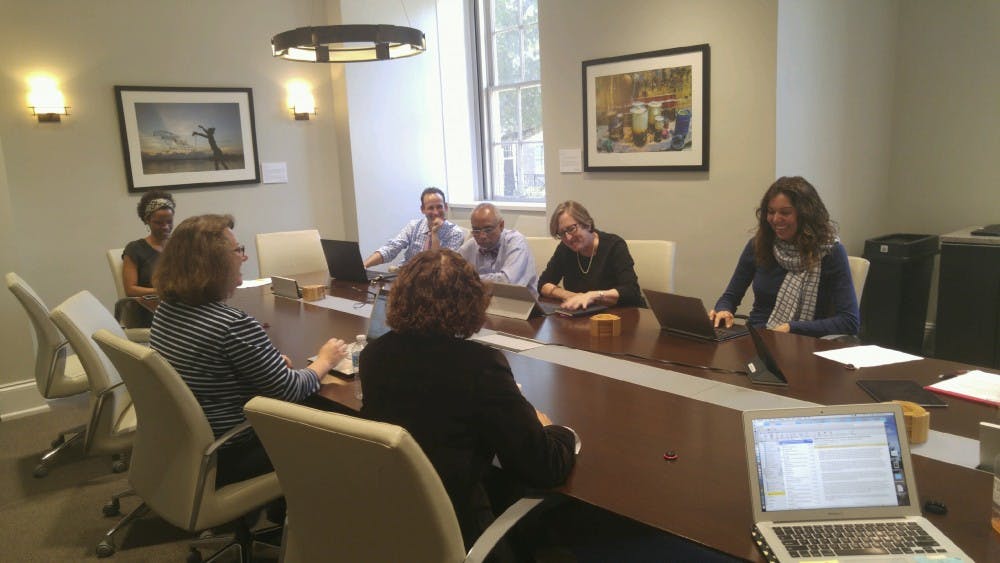At the Faculty Executive Committee meeting on Monday, representatives from the UNC faculty discussed the freedom of University staff to exercise political action and the legal limits to that freedom.
Vice Chancellor and General Counsel Mark Merritt answered questions and concerns raised by faculty to the committee members regarding what can be done to help UNC students affected by recent executive orders made by President Donald Trump.
One particular focus was on politically active Deferred Action for Childhood Arrivals students. School of Social Work professor Mimi Chapman raised the question of what can be done by faculty in the event that a DACA student, who partakes in activism or peaceful protests, is arrested and faces deportation.
“What are we as a University prepared to do about this?” Chapman said.
Merritt’s response emphasized the importance of students, rather than faculty, keeping a level head in face of these troubled times. He said DACA students who are politically active need to be very careful.
"One of the priorities is priorities for deportation," he said. "If you’re in a lawful demonstration as a DACA student and you’re charged with a crime, our concern is that you are moved into a category.”
He said there are rules preventing faculty from being active in the political community in their role as professors. Under current University policy, professors are forbidden from actively campaigning or raising funds for political candidates or from giving preferential treatment to students or staff members who agree with their political viewpoints.
Faculty Chairperson Bruce Cairns said with the current turmoil in United States politics, the lines on where these policies must be enforced are being challenged and it’s not always clear for faculty where to turn for help to determine what is tolerable.
“These questions are being asked all over campus," he said. "We’re trying to figure out how we can create a framework for getting expert advice."




